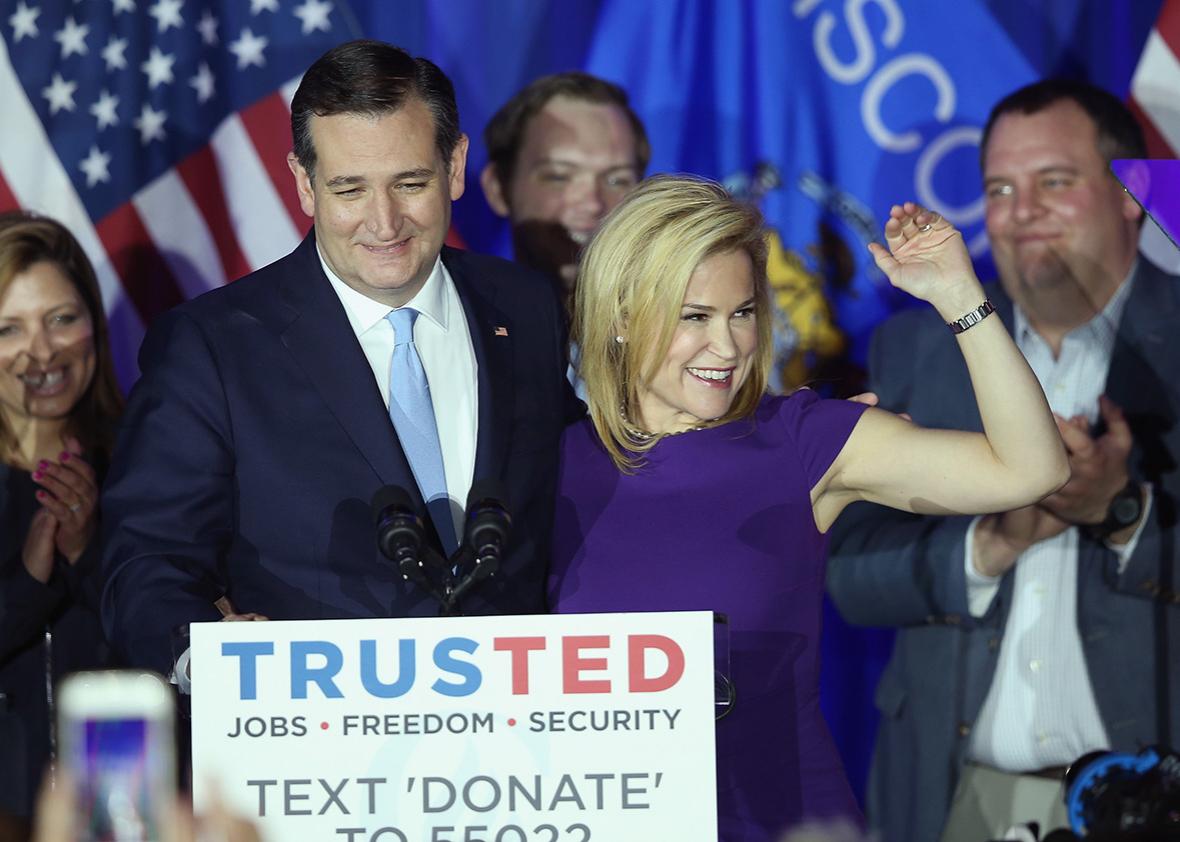MILWAUKEE—Ted Cruz’s victory in Wisconsin was the crown jewel of what has otherwise been a spotty group effort to deny Donald Trump his delegates. Cruz leveraged a coalition of evangelicals, well-educated conservative suburbanites, local talk-radio personalities, and the Wisconsin Republican Party apparatus to his advantage in a dominant victory that, once the final numbers are tallied, will give him the vast majority of the state’s 42 delegates. It also didn’t help Trump to be retweeting things about how Cruz’s wife was butt-ugly.
The Cruz slogan in the two-week runup to Wisconsin was that the state’s primary would mark a turning point in the race, after which the Trump campaign, having been exposed as a fraud by the glorious people of the Badger State, would be reduced to a pile of bones bleaching in the Whitefish Dunes.
“Tonight is a turning point,” Cruz said at his victory party Tuesday night in Milwaukee’s American Serb Hall. “It is a rallying cry. It is a call from the hardworking men and women of Wisconsin to the people of America: We have a choice. A real choice.”
But how much of a turning point is it?
In his victory speech, Cruz played up the idea of “momentum,” chronicling his recent delegate pick-ups in all manner of political events: a caucus, a primary, a few conventions. “Four very different states—Utah, Colorado, North Dakota, Wisconsin—four victories,” he said in front of beaming supporters. Sure, these states aren’t identical. But his best states have proven to be in the West and the Great Plains, and Rubio’s exit from the race made Cruz a much stronger candidate in the Midwest.
But now the race heads back to the East Coast. Any chatter of “momentum” for Cruz will be extinguished on April 19 with the arrival of the New York primary, which is another way of saying that “momentum” isn’t a good framework for considering this primary calendar. With a broad, statewide win in New York, Trump can cancel out most of the delegate gains Cruz has made in recent smaller contests. Cruz does have two events scheduled this week in New York: one at a Bronx charter school and another further upstate at a Christian school in Scotia. But the calendar doesn’t really pick up for him again until early May, with its contests in Indiana and Nebraska.
Cruz’s Wisconsin win is a serious turning point in the sense that it was not a win for Donald Trump. Capturing a majority of the 42 delegates was critical to Trump’s quest for 1,237 bound delegates; congressional district results so far suggest that Trump will earn three to nine delegates instead. Had Trump won, say, 30 to 36 delegates, as polling a month ago suggested he would, projections would have had him in line to secure his majority. Trump’s path to 1,237 has been tight from the beginning; he’s never had the luxury of a whiff here and there. Tuesday night was a whiff.
Trump’s best—perhaps only—shot at the nomination is on the first ballot, and more and more it’s looking as if he’s going to end up somewhat shy of 1,237 in bound delegates. Campaign strategy now turns to the matter of unbound delegates. There are several hundred of these delegates floating around out there for one reason or another: They were released when candidates dropped out of the race; they were (or will be) chosen at state or local conventions instead of by statewide vote; or, as is the case for most of Pennsylvania’s delegates, they will be elected directly on the ballot by voters. Cruz, who is vastly more organized in this regard, has cleaned up so far in these under-the-radar events. Trump doesn’t need all that many unbound delegates, but his campaign will likely live or die on its ability to capture some “50 to 75” of these, as his adviser Barry Bennett recently told NBC News.
As of that report from late March, the Trump campaign considered the 40 days between the end of primary season and the beginning of the convention its window for swaying unbound delegates. It’ll certainly be adjusting that timetable now. There’s your turning point.
Read more Slate coverage of the 2016 Republican primary.
